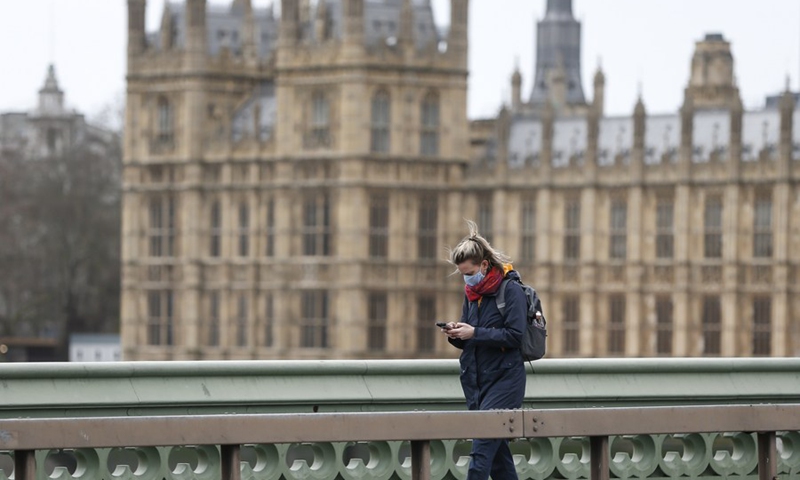
A woman wearing a face mask walks along Westminster Bridge in London, Britain, on Feb. 17, 2021.(Photo: Xinhua)
About 140,000 Londoners have got long COVID-19 symptoms after contracted the disease amid warning of healthcare "gaps" that could leave them struggling to get support, the Evening Standard newspaper has reported.
It came in a letter from the London Assembly to Mayor Sadiq Khan seeking assurances that the British capital's health system has the capacity to cope with the long-term consequences of the pandemic, said the newspaper.
About one in five people who have contracted COVID-19 suffer symptoms such as fatigue, breathlessness and "brain fog" for 12 weeks or more, according to the London-based newspaper.
Early research suggested younger people and those whose illness was not serious enough to require hospital admission were more likely to suffer long COVID-19 symptoms.
A total of 698,405 Londoners have been diagnosed with COVID-19, meaning about 139,681 will be facing or have suffered long-term consequences, the newspaper said.
In the letter, the assembly warned that "gaps" in healthcare provision could result in long COVID-19 patients struggling to obtain support.
"Some people experiencing long COVID have been unable to work or walk 10 meters without needing to take a break. Our city must be prepared to treat those who are experiencing prolonged symptoms," Onkar Sahota, who chairs the assembly's health committee, told the newspaper.
At least 10 long COVID-19 clinics have been established in London, including at University College London Hospitals, Imperial College Healthcare and St George's, the newspaper said.
England is currently under the third national lockdown since outbreak of the pandemic in the country. Similar restriction measures are also in place in Scotland, Wales and Northern Ireland.
To bring life back to normal, countries such as Britain, China, Germany, Russia and the United States have been racing against time to roll out coronavirus vaccines.
